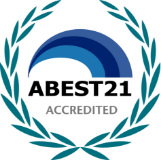Characteristics of the MBA Curriculum
Full-time professional graduate school offering daytime lectures Monday through Saturday
- Professional degree lectures are generally offered between 8:45 and 18:00 Monday through Saturday.
- The courses comprise curricula that cannot be completed by taking courses only on Saturdays and in the evenings.
(Individuals employed full time are advised to attend only after taking a leave of absence or retiring from their full-time role.) - No master's thesis is required for completion of this course of study.
Subjects for realizing step-by-step study
We offer various class subjects through which students can acquire specialized knowledge and develop practical problem-solving skills based on compositional science theory.
The course of study features a subject structure in which students take classes systematically, and primarily comprises Basic Subjects in the first semester of the first year, specialized subjects in the second semester of the first year and the first semester of the second year, and practical and developmental subjects beginning in the first semester of the second year.
| Introductory Subjects | Subjects intended for students who have not studied at the undergraduate level and individuals employed in the workforce, with the aim of acquiring basic knowledge in fields they have not studied |
|---|---|
| Basic Subjects | Subjects intended to assist students in acquiring a basic level of understanding and analytical ability related to business management |
| Specialized Subjects | Subjects intended to assist students in learning the specialized knowledge required to resolve practical management issues |
| Business Practice Subjects | Subjects in which practitioner teachers, who are involved in cutting-edge practice in each field, introduce real-world phenomena, problems, knowledge, and techniques found in the field |
| Advanced Subjects | Subjects (Workshops) intended to facilitate students’ further development by combining the knowledge and theory acquired in Basic and Specialized Subjects with the current state of practice, as learned in practical subjects |
Setting up supervisors
To ensure the acceptance of human resources with diverse backgrounds and career achievements, we provide support for all aspects of learning and have established a finely tuned education system that includes an advisor for each student and instruction focused on teaching students best practices in studying.
Supervisors provide active support to help students realize their commitment by providing appropriate learning content and study plans to enable students to reflect on the state of their own learning, goals, and future career paths with supervisory support.
Small-group instruction through workshops
We have prepared Workshops for each educational program to support students in integrating and developing the knowledge and theory acquired in Basic and Specialized Subjects with the current state of practice, as learned in the Business Practice Subjects defined above.
The Workshops’ purpose focuses on deepening students’ understanding of business foundations by requiring them to thoroughly research and examine content that is tailored to various specializations in a small-group format.
Students in professional degree courses enroll in the Workshops in their second year, during which time many students conduct surveys and research on topics that they identify themselves under the guidance of their supervising instructors over a one-year period.
Designed for those aiming for a global career
The Graduate School of Management aims to cultivate leaders who can contribute to global business development at global companies and international organizations in the future. We are actively working to enhance our English language education and English debate skills in international programs, and to develop case study materials related to international business and other relevant projects.
In addition, we provide information on international internships offered by global companies, international financial institutions, JICA, and others, as well as overseas seminars and workshops held at overseas universities and research institutes, such as University of California-Davis and the University of Transport and Communications in Hanoi, and have also established a support system that enables students to actively participate in these opportunities.
To promote international exchange, we have also introduced a study abroad system (exchange study) in which students from each university are allowed to study abroad for one semester in accordance with student exchange agreements.
Other Systems
We provide various training styles to meet the increasingly diverse needs of new students.
| Single-subject system | The single-subject system allows a person who has professional experience in the workforce and has been admitted to the graduate school to take specific subjects. |
|---|---|
| Long-term course system | The long-term course system allows a person to take courses in the curriculum in a planned manner over a certain period of time that extends beyond the standard course length (two years for professional degree courses and three years for doctoral courses) for various reasons, such as a student’s desire or need to maintain full-time employment while enrolled. (Prescribed reviews are carried out for some courses of study, but are not applicable to one-and-a-half-year courses, tourism management science courses, and international programs.) |
| Accreditation system for acquired credits | The accreditation system for earned credits certifies credits earned at other graduate schools as acquired credits at this graduate school following a review (If all conditions are met, candidates can complete the requirements in one year.) |
| Special accelerated completion system (+MBA) | In the special accelerated completion system (+MBA), if a student enrolled in a Kyoto University graduate school wishes to enter this graduate school after completing the requirements of the other graduate school, and he/she enrolls in this school’s subjects while also enrolled at the other graduate school, this school certifies the credits earned elsewhere as acquired credits after the student is admitted, and they then aim to complete the required courses in one year. |


